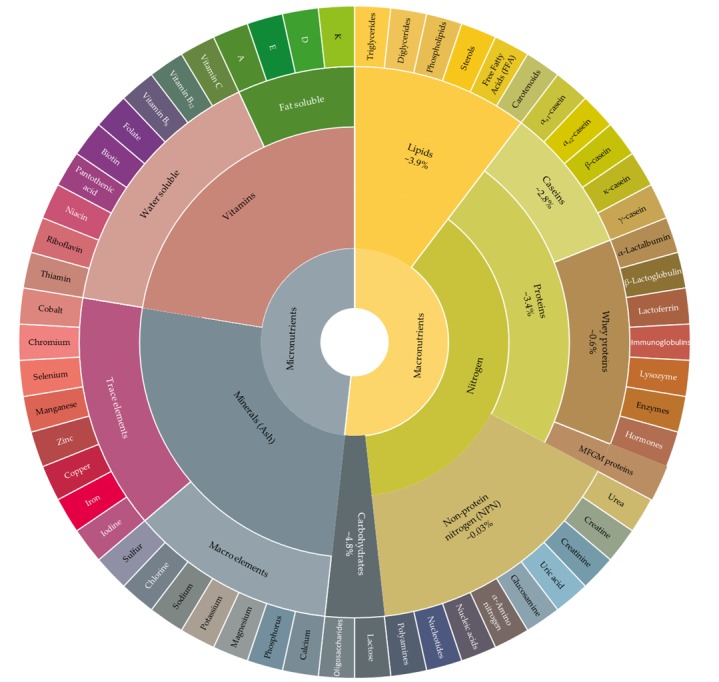The main "cons" against eating cheese tend to be based on concern about the animal's diet being high in pesticides, antibiotics, grains, or GMO compounds, as well as concern about the welfare of the animal itself. Most dairy-based cheeses come from cows, goats, or sheep.
The content of saturated fat and sodium may also raise a red flag for some individuals, though a causal relationship between saturated fat alone and CVD is not clear.
While there may be valid reasons to choose not to consume animal-based dairy products, research suggests that cheese consumption is associated with positive health outcomes. These include a decreased risk of hypertension, cardiovascular disease, ischemic stroke, and type 2 diabetes. The benefits associated with cheese consumption include (Hu 2022):

Bovine milk composition wheel. Sections are not proportionate to the actual content of each component in milk.
Source: Alothman, Mohammad et al. “The "Grass-Fed" Milk Story: Understanding the Impact of Pasture Feeding on the Composition and Quality of Bovine Milk.” Foods (Basel, Switzerland) vol. 8,8 350. 17 Aug. 2019, doi:10.3390/foods8080350 This article is an open access article distributed under the terms and conditions of the Creative Commons Attribution (CC BY) license (http://creativecommons.org/licenses/by/4.0/).
There is no doubt that animals should be cared for in a humane manner and fed a diet that maximizes nutritional value and minimizes toxin content. Recognizing and appreciating animals as sentient beings is important to the welfare of humans as well.
Consuming cheese from well-cared-for, well-fed animals may contribute to health and reduce the risk of chronic diseases such as type 2 diabetes and cardiovascular disease. Pasture feeding, and increasing grass intake, can increase the content of omega-3 fatty acids and extend the nutritional benefits of cheese.
Although cheese from cow's milk is most commonly consumed, other options are increasingly available, including goat cheese, sheep-milk feta, and pecorino Romano from sheep's milk. Moderation is usually the key to a healthy diet and a healthy being... and the same applies to cheese!
It is important to note that fresher cheeses have more lactose and more aged cheeses have more histamine. Therefore, individuals with sensitivity or intolerance to lactose and histamine may need to limit intake or consume lactase or diamine oxidase, respectively, when they consume these foods.
Hu, Meng-Jin et al. “Effect of Cheese Intake on Cardiovascular Diseases and Cardiovascular Biomarkers.” Nutrients vol. 14,14 2936. 18 Jul. 2022, doi:10.3390/nu14142936